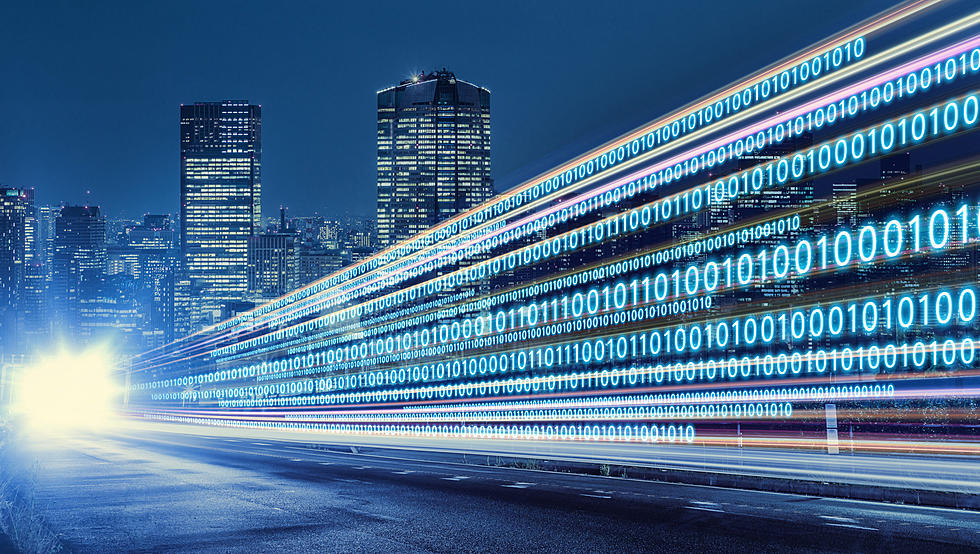
Legislation Poses Threat To Your Right To Read This With Proposed SOPA and PIPA Bills
Ever heard of SOPA? How about PIPA? For most of you the answer is likely no on both counts. Both of these have to potential to do serious damage to our First Amendment rights to free speech and expression. SOPA, the Stop Online Piracy Act (the House version of the bill) and PIPA, the Protect IP Act (the Senate version) are bills designed, on the surface, to put the clamp on online piracy. Have you ever downloaded a song from a so-called free site? That may have been piracy. Ever had a friend give you a bootlegged copy of a film that hasn’t even come out on DVD or Blu Ray yet? That’s piracy. And that is what the legislation is designed to combat.
But as we all know, you give the federal government an inch, they’ll take 5,000 miles. They are drunk with power up there on the Potomac. Most of us who pay any level of attention to what’s going on around us knows this. There is a culture of imperialism in Washington that has been growing at an exponential rate for decades. The pace has accelerated over the last decade. The Patriot Act seemed like the right idea in the wake of 9/11. And good things have been done under the powers it created. But, as with most powers bestowed upon our government, it has been used and abused to the point that even staunch conservatives like me are calling for its repeal or, at the very least, serious modifications and clarifications as to how it can and will be used.
But in 2012, we are faced with the ever-expanding power that is the Internet. For all the bad stuff that can be had with the click of a mouse, there is so much good that can come from the unfettered, unfiltered and unregulated information superhighway. [Sidebar: the term ‘information superhighway’ was reportedly coined by ex-vice-president Al “Million Degrees at the Center of the Earth” Gore back in 1994. Supposedly, this is where the belief that Gore ‘invented’ the Internet began. He wishes.] While both SOPA and PIPA look like great ideas on the surface, it’s clear that they open the door to rapid and almost immediate regulations that will reach beyond Hollywood or Music Row.
Why are SOPA and PIPA extremely bad ideas?
It would take hours to run down the legislation in any great detail, but you get the idea; this will, in theory, stop online piracy. Wrong. Does it impose stiff penalties against websites that post stuff illegally for download? Yes. Does it give teeth to existing laws? To a degree, yes. Will it stop online piracy? No way, no how, but that’s what you’re being asked to believe. Don’t believe it. The ‘bad guys’ will always find a way to side-step any electronic roadblocks that might be created. We already have laws in place to punish those who download music or movies illegally. People have already been prosecuted under existing laws. The industry argues that once the intellectual properties are violated, it’s too late. The damage is done and millions in potential profits are lost. This is true, to a degree, but does this justify ripping the First Amendment to shreds?
Opponents argue that the potential for censorship will most certainly become a reality under either bill. I agree. And it’s rare that I ever agree with anything the ACLU or Nancy Pelosi would support. This is one of those rare occasions where we are all on the same page. Take a picture. It’s like Haley’s Comet. You won’t live long enough to see this again. As a true Constitutional Conservative, my desire to preserve our God-given right to free speech exceeds the rights of an industry to protect its property. Sorry, Rupert Murdoch. We’ll have to agree to disagree on this one. As of this afternoon, the L.A. Times reports some major support has been withdrawn:
Three co-sponsors of the SOPA and PIPA antipiracy bills have publicly withdrawn their support as Wikipedia and thousands of other websites blacked out their pages Wednesday to protest the legislation.
Sen. Marco Rubio (R-Fla.) withdrew as a co-sponsor of the Protect IP Act in the Senate, while Reps. Lee Terry (R-Neb.) and Ben Quayle (R-Ariz.) said they were pulling their names from the companion House bill, the Stop Online Piracy Act. Opponents of the legislation, led by large Internet companies, say its broad definitions could lead to censorship of online content and force some websites to shut down.
In a posting on his Facebook page, Rubio noted that after the Senate Judiciary Committee unanimously passed its bill last year, he has "heard legitimate concerns about the impact the bill could have on access to the Internet and about a potentially unreasonable expansion of the federal government's power to impact the Internet."
I personally believe that the political awakening we’ve witnessed in America over the last couple of years has been the result, in part, of the massive amount of information that can be had on your computer. You, the average Joe or Jane, the voting public, are more involved than ever. You've been blessed with a gift of nearly instant information the likes of which the human race has never known and you're using it to your advantage. There are those who would love to put a stop to that. There was a time, not so long ago in fact, when a politician could propose legislation such as this and it could go unnoticed for days, weeks, months, or possibly would never see the light of day. If Senator XYZ did something incredibly stupid, he had time to do some damage control before you got home to see the 5:30 news. Those days are gone forever. You’re ability to find out what’s what and who’s who has been reduced to mere seconds, minutes at most.
There’s plenty online that I don’t like. There are things I find offensive, vile and even destructive. But those things have been around us for a very long time, long before there was an Internet. You and I have the ability to decide what we will and will not accept, absorb, look at, support or use. We have the ability to change the dial on the radio if we hear a song we don’t like, to change the channel on the TV when we see a program we find offensive or just not entertaining, and we have the ability to choose to not download music, videos or programs illegally online. We have the ability, as with all things in life, to do what is right. We don’t need the government to tell us how to define that. We do not need Washington filtering the Internet and this is exactly where we will land with this, I promise you we will. This legislation needs to die. If it doesn’t, you’re ability to see even articles like this WILL be jeopardized. Tell our representatives to just say no to SOPA and PIPA!
Here’s how to contact our reps for North Texas:
Rep. William “Mac” Thornberry
Phone: 202-225-3706
Sen. John Cornyn
Phone: 202-224-2934
Twitter: @JohnCornyn
Sen. Kay Bailey Hutchison
Phone: 202-224-5922
Twitter: @kaybaileyhutch
More From Newstalk 1290

![The Next Great Debate: Time in the United States [POLL]](http://townsquare.media/site/192/files/2018/03/GettyImages-109832459.jpg?w=980&q=75)







